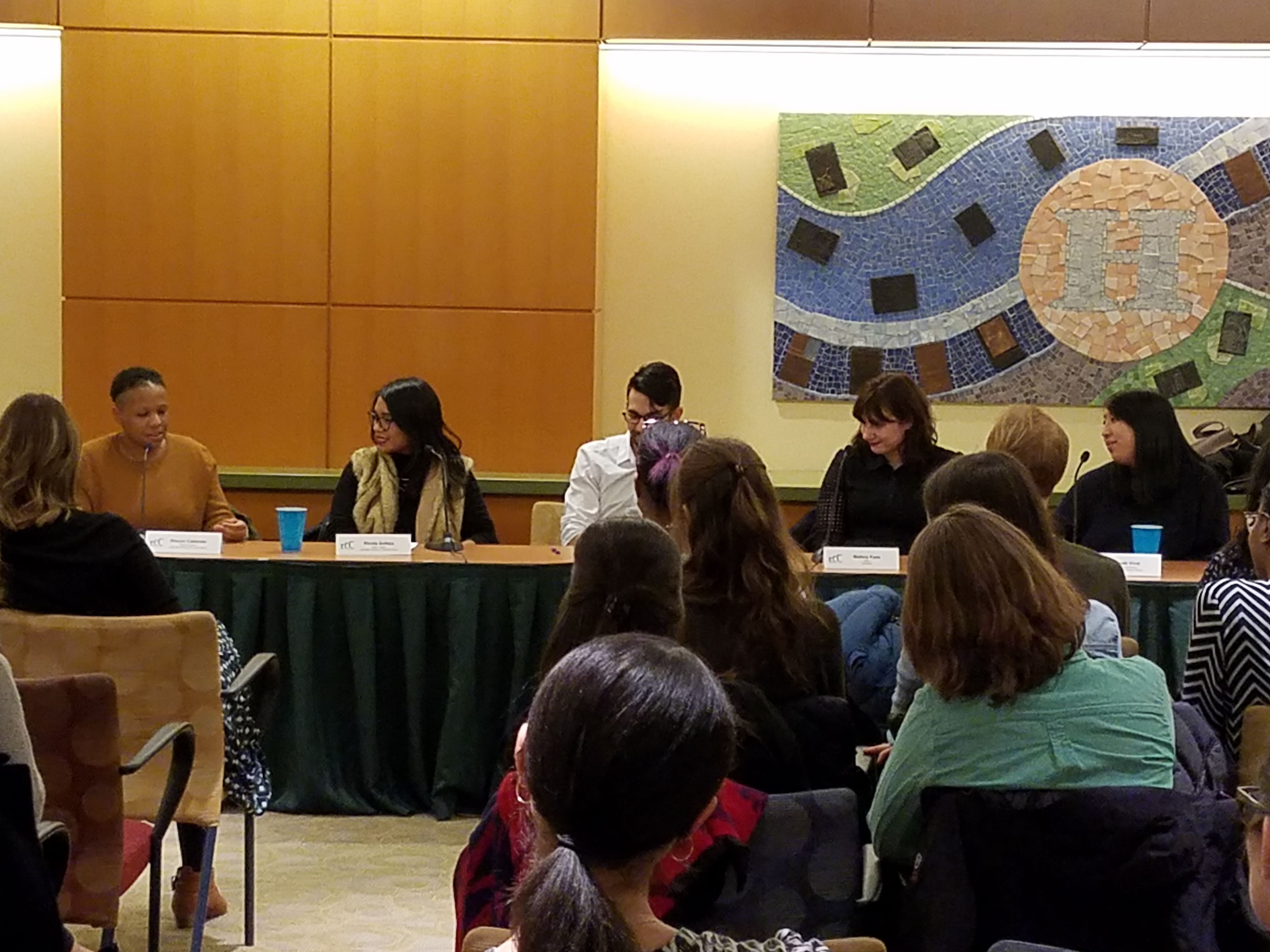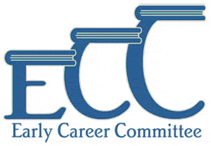
The ECC Career Crossover Panel Recap | March 28, 2017
by Orlando DosReis (Abrams)

From L to R: Kheryn Callender, Rhoda Belleza, Orlando DosReis, Mallory Kass, and Booki Vivat
On Tuesday, February 21st, the ECC held its first Continuing Education event of the year: a publishing luminaries panel titled “The Crossover” that brought together four dynamic and distinguished industry professionals—who happen to be authors themselves. The panel featured Kheryn Callendar, assistant editor at Little, Brown Books for Young Readers; Booki Vivat, Associate Publicist at HarperCollins Children’s Books; Rhoda Belleza, editor at Macmillan Children’s Books; and Mallory Kass, senior editor at Scholastic. Together, these publishing professionals-turned-authors addressed a packed room at Penguin Random House’s office in Midtown.
Many book publishing professionals aspire to publish their own works and become authors themselves. For all of our panelists, the career in publishing came first. The road to landing a book deal is a tough one, but working in the industry does help to navigate that road a little more easily. This is not to say that it is necessarily easier to become a published author simply because one works in the industry—you still need to be a talented writer and/or illustrator—but the knowledge of how books are acquired, published, marketed, and sold is an advantage that most author hopefuls do not have. How to write effective flap and cover copy, for instance, is one skill among many that our panelists have mastered; and it helps, too, to know what’s hot on the market. That said, our panelists stressed that while knowledge of the market and what is in vogue is certainly helpful, it usually does not affect their writing processes: First and foremost, they all echoed, you have to write the story that you want to write.
The path to a publishing deal is interesting in itself. Kheryn, for instance, queried her agent through regular channels. Rhoda, however, took an altogether different route—through a book packager. Book packagers work with authors to develop the entire book package (from editorial to design), and are then sold to book publishers. Booki—our only panelist not to come from editorial—fell into the opportunity in a more unconventional way. According to Booki, her coworkers noticed her doodles and suggested that she pursue a book project. She ended up publishing her book with her own house. (Some houses, though, have strict rules prohibiting employees from submitting their work to their own house.)
One struggle our panelists all shared is time: our panelists are book publishing professionals, but they’re professional authors, too. As Mallory pointed out, it’s like having two full-time jobs, on top of finding the time to live one’s life and do necessary things like laundry or grocery shopping (not to mention maintaining a healthy social life). Some carve out a little time each day to write, even if it’s only a few hundred words. Kheryn, for instance, wakes up every day at 4:30 in the morning to get her writing time in. From a professional standpoint, both Mallory and Rhoda admitted that the choice can be a very difficult one: Authors put so much time and heart into their works, so as authors themselves, they sympathize with how precious a manuscript can be to a writer. As editors, they take this to heart, too, striving to give 100% of their attention and care into the manuscript, as they know their authors have. Despite this ever-present struggle, none of our panelists would—at least for the moment—choose one half of their professional identities for the other.







